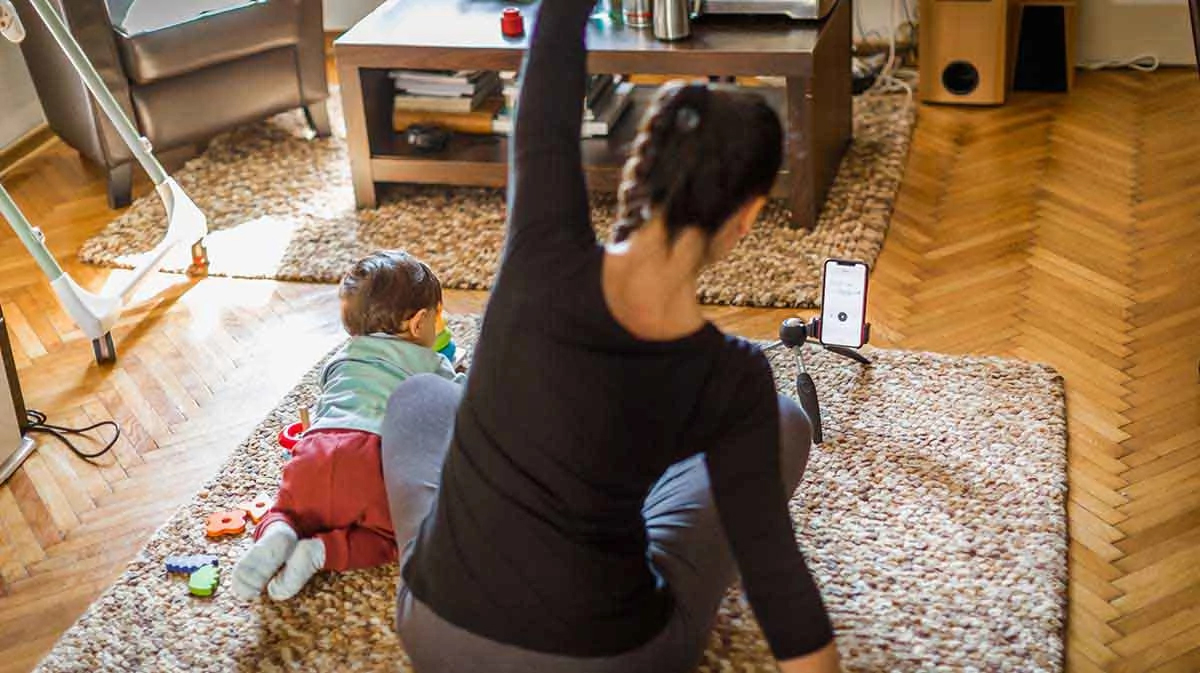Inner motivation
Look within. If the reason for starting a health drive is the simple reason of being healthier, then that’s inner motivation. If this is you, then you can be encouraged by the fact that intrinsic motivation is considered the best form of motivation.2
It’s such a powerful motivation that you can even get enjoyment or satisfaction from undertaking the tasks required to reach your goal, even if you don’t enjoy the actual task. For example, you may not enjoy running but can still derive enjoyment from completing a run three times a week because it is a key component of your overall health goal.
More good news is: intrinsic motivation can be nurtured. If you have ever considered pursuing a health target, you have already sewn a seed of intrinsic motivation. But to turn that seed into a motivational force capable of driving you to realising a health goal, you need to experience accomplishment and gain competences along the way.3
For example, if your health aim is to become physically stronger, you may set yourself the SMART goal of being able to do 20 press-ups continuously. Such a goal is Specific: you’re not just saying you want to be able ‘to be better at press-ups’. It is Measurable: can you hit that number of press-ups or can you not. It is Achievable: for someone who can already do five press-ups continuously, moving up to 20 should be attainable. If you can already do 15 press-ups however, you might want to shoot for a higher number as setting the bar too low can inhibit your motivation to achieve a goal4. It is Realistic: a press-up works many different muscle groups and will certainly develop your overall health goal of being ‘physically stronger’. It is also Time-based: set yourself a deadline by when you want to hit your target of being able to do 20 continuous press-ups.
Reward-based motivation
Are you someone who responds well to being awarded a prize? If so, creating a reward-based system can be a powerful way of motivating yourself towards achieving a goal5. This is called extrinsic motivation.
To apply this as a motivational tool, you need to first establish what your health goal is and then work out the necessary milestones you need to achieve it.
For example, to achieve the health goal of having more energy, you might choose to drastically reduce foods with a high glycemic index6. To help you achieve that milestone, you could reward yourself by eating your favourite sweet treat after seven days of strict adherence.
Don’t make the reward so indulgent that it counteracts the progress you’re making but, equally, be sure to make the reward something you really do want.

Group motivation
Thrive on competition with or against others? Try peer pressure. Peer pressure has traditionally been held up as a negative influence but studies have shown that it can be deployed to bring about positive results.7
If you try to achieve a goal, you’ll naturally compare your progress against peers trying to do the same, especially if you know each other, which can engender a need to impress, or to at least not be left behind. Such peer pressure can be an extremely valuable source of external motivation8 and can be embraced to help people towards their goals.
To create positive peer pressure, you can actively seek out other people taking on similar health goals and stay in regular contact with them, encouraging each other’s successes – taking inspiration from them – and swapping tips on how to overcome any problems.
Get involved with a virtual team by signing up to the Cigna Body&Mind app where you can take part in a team challenge. You don’t need to form your own team, just join fellow app users on one side, competing against another group, in a health-based event.
Emotional motivation
Emotions can play a decisive role in firing your motivation towards a health goal. New York Times best-selling authors Chip and Dan Heath maintain that people “focus on emotion. Knowing something isn’t enough to cause change. Make people (or yourself) feel something.”9
Has an emotional moment – such as a health scare, or the birth of a child – promoted you to take up a health goal? If so, the emotions that you felt when experiencing that life moment can be used to motivate you, not just in the short term but also in the long term.

Challenge-based motivation
Many people will work better towards achieving a health goal, if it’s part of an exciting or inspiring challenge. That might be participating in a five-mile swim, or running a half-marathon, or competing in a chess tournament.
If that’s you, the motivations already mentioned in this article can all be applied to your chosen challenge. Use the SMART system of goal setting and pay particular attention to setting the right challenge in the first place, one that’s not too easy, nor unobtainable.
In addition, it’s important to set a challenge that you want to achieve, rather than one that other people want you to achieve, such as family or friends. In this regard, be wary of saying yes to participating in a challenge a friend is doing unless you also think it’s right for you.
And remember, don’t feel guilty or lose motivation if you don’t manage to complete the challenge. Even if you’ve not reached your ultimate goal, you will still have progressed just by embarking on the journey.
Sources:
1 Nutriciously.com – ’11 Steps that Spark your Motivation to eat Healthy’
2 Parenting for Brain – ‘What is Intrinsic Motivation & How Does it Work?’
3 Edutopia.org – ‘Nurturing Intrinsic Motivation in Students’
4 Positive Psychology – ‘What is Goal Setting and How to Do it Well’
5 Hockenbury & Hockenbury, 2003
6 Harvard Health Publishing – ‘9 tips to boost your energy — naturally’
7 Scientific American – ‘Peer Pressure Has a Positive Side’
8 EHS Today – ‘Team Spirit and Peer Pressure Motivate Employees More than Money’
9 Chip and Dan Heath – ‘Switch: How to Change Things When Change Is Hard’


